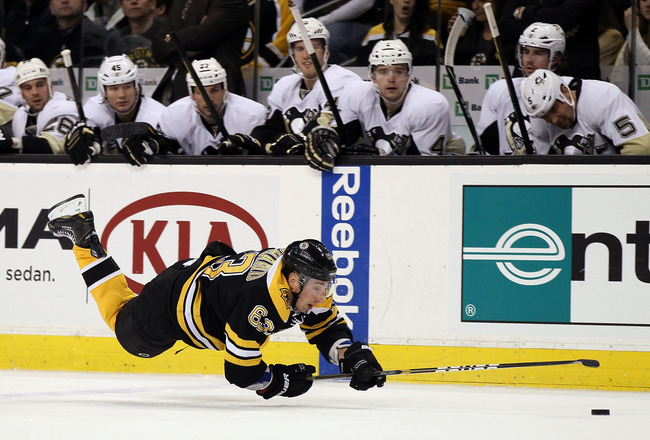
Speculation as to why the Habs are perceived as the dive-masters of the NHL. A psychological perspective.
By Michael F. Enright, Psychologist and Hockey Fan, Special to All Habs Hockey Magazine
MONTREAL, QC. — Sports, like politics, is a domain where the press, frequently biased and self-serving, shapes public opinion, where devotees ‘think’ with their guts and hearts not their minds, and where cognitive associations, perhaps unconscious, abound.

The first two of these factors are fairly self-evident, especially in hockey centers like Boston and Toronto. Both cities have gone out of their way to portray the Montreal Canadiens as the dive-masters of the NHL, at times suggesting that the other twenty-nine teams never dive at all.
The more effective enemy of truth is not the lie, it is the myth. And any myth, once promulgated and peddled by the press can be effectively self-serving and a joy to the sentiments of dutiful readers and listeners who whole-heartedly accept and pass the myth forward. In Boston, the myth that the Habs are the masters of the dive helps explain why the Bruins, with their sense of win-entitlement, presumably because they are bigger and tougher, so often lose to Montreal; and in Toronto, primarily through homer Hockey Night in Canada and TSN analysts, it is just another petty way to disrespect and devalue Montreal’s accomplishments in the wake of continual Maple Leaf failure and disappointment.
But I would like to focus on the third of the above listed factors in this issue: that cognitive associations, perhaps unconscious, may be at play in the perception that the Habs are the dive-masters of the NHL.
Developmentally, the mind forms cognitive associations through experience, learning, modeling and authority. Over time, these associations interweave into a schema which becomes the blueprint through which we interpret and make sense of the world.
Once the schema is established, the mind then works as a filter focusing on and often aggrandizing events, people, and circumstances which support the schema, and ignoring or deemphasizing those which don’t. Hence the foundations of bias, prejudice and myth.
Now, a simple question: apart from having won 24 Stanley Cups, what cognitive association, not the case with any other NHL team, goes with the Montreal Canadiens?
Obvious answer: it is a French team. True, the mix of players is no longer predominantly French. The present team composition in Montreal reflects the same mix of Canadians, Americans and Europeans, from a variety of hometowns, roughly equivalent to all the other teams in the league. But the team’s history and heritage is French as reflected in the majority of its retired numbers and Hall-of-Famers, its public face in the English televised press across Canada and in the United States is French as reflected in the charming accent of its mandated French-speaking coach, and its home is a cosmopolitan city with predominant French notes in a province where beyond urban centers English is rarely spoken.
And what kind of associations does French carry? Well, certainly foreign. Also, European, I would think. And set in the context of the only sport which not only permits but justifies fighting, and which prides itself on the toughness and endurance of manly men, preferably farm boys from the Canadian prairies, who can take a puck in the face, spit out the teeth, have the cuts sewn up and get back on the ice for the next shift, perhaps foreign and European with associations of unmanly men writhing on the ground in a non-contact sport where embellishment is part of the game just don’t cut it.

Weren’t we told at one point, when Europeans were becoming more present in the NHL, by the self-proclaimed know-it-all, Don Cherry, that “Swedes won’t go into the corners?” And if Swedes lack guts and courage, and have to revert to cheating, how much worse must be the French? After all, didn’t they cower and crumble to, and then collaborate with, the Nazis in World War II?
Such is the nature of cognitive associations, often operating at a level slightly below consciousness. Such is the dynamic, the process by which bias and myth are formed. And once formed, bias and myth can be conveniently self-serving in shaping and perpetuating public opinion to justify whatever we choose to the exclusion of and while ignoring opposing or contradictory evidence.
Ironically, one of the toughest bastards ever to play in the NHL was French Canadian… the Rocket. And diving was pioneered and elevated to an early art form by one of the Broad Street Bullies… Bill Barber.